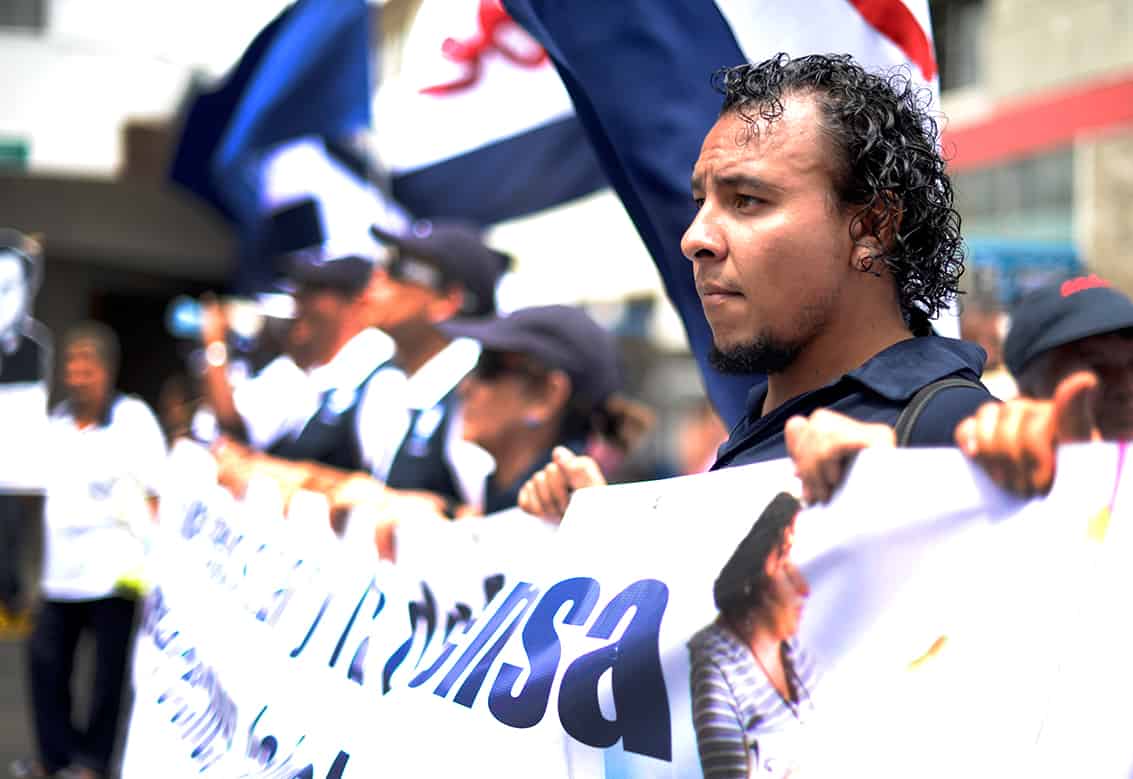On Labor Day in Costa Rica, union groups and political party activists came together to protest against “anti-worker laws” and the government of President Rodrigo Chaves. They marched in defense of Costa Rica’s Social Security and demanded fair wages and land for workers.
Demonstrators strongly criticized the government’s decision to move forward with the incorporation of Costa Rica into the Pacific Alliance and opposed the Public Employment Law and the 4/3 workday Bill of Law.
Participants used banners, music, and chants to express their discontent and demands as they marched along San Jose’s Second Avenue from the Parque de La Merced to the Plaza de la Democracia. The union from the Costa Rican Social Security Fund defended the institution and called for unity against corruption, tax evasion, and the “neoliberal model.”
The National Association of Public Employees (ANEP) stated that Costa Rica has become an “unrecognizable country” characterized by inequality. The working class has precarious salaries, is highly indebted, and has severe liquidity problems, while the national agricultural sector is on the verge of total extinction. These issues, along with others, were highlighted by the protestors during the Labor Day march.
Gilbert Díaz, president of the Costa Rican Education Workers Union, expressed his disapproval of the current government and the lack of solutions to the ongoing crisis. He asked Costa Ricans what policies have been implemented to benefit them and their families.
The unions called for the government to engage in dialogue and implement policies that would benefit all workers in the country. They emphasized that the working class was the most affected by the crisis and demanded that Congress representatives legislate “in favor of the people and the workers” and not favor the “elite.”
The Labor Day march was a powerful demonstration of the widespread dissatisfaction and frustration felt by Costa Rican workers. The protest was a reminder to the government that their decisions have real consequences on people’s lives and that the working class will continue to demand fair treatment and representation.
The Labor Day march in Costa Rica was a testament to the strength and solidarity of the working class in the face of adversity. The protestors used their voices and their presence to demand change and to call for policies that would benefit all workers in the country. The government must listen to their demands and engage in dialogue to find solutions to the ongoing crisis.
The Labor Day march was not just a celebration of workers’ achievements, but also a call to action for a more just and equitable future.






